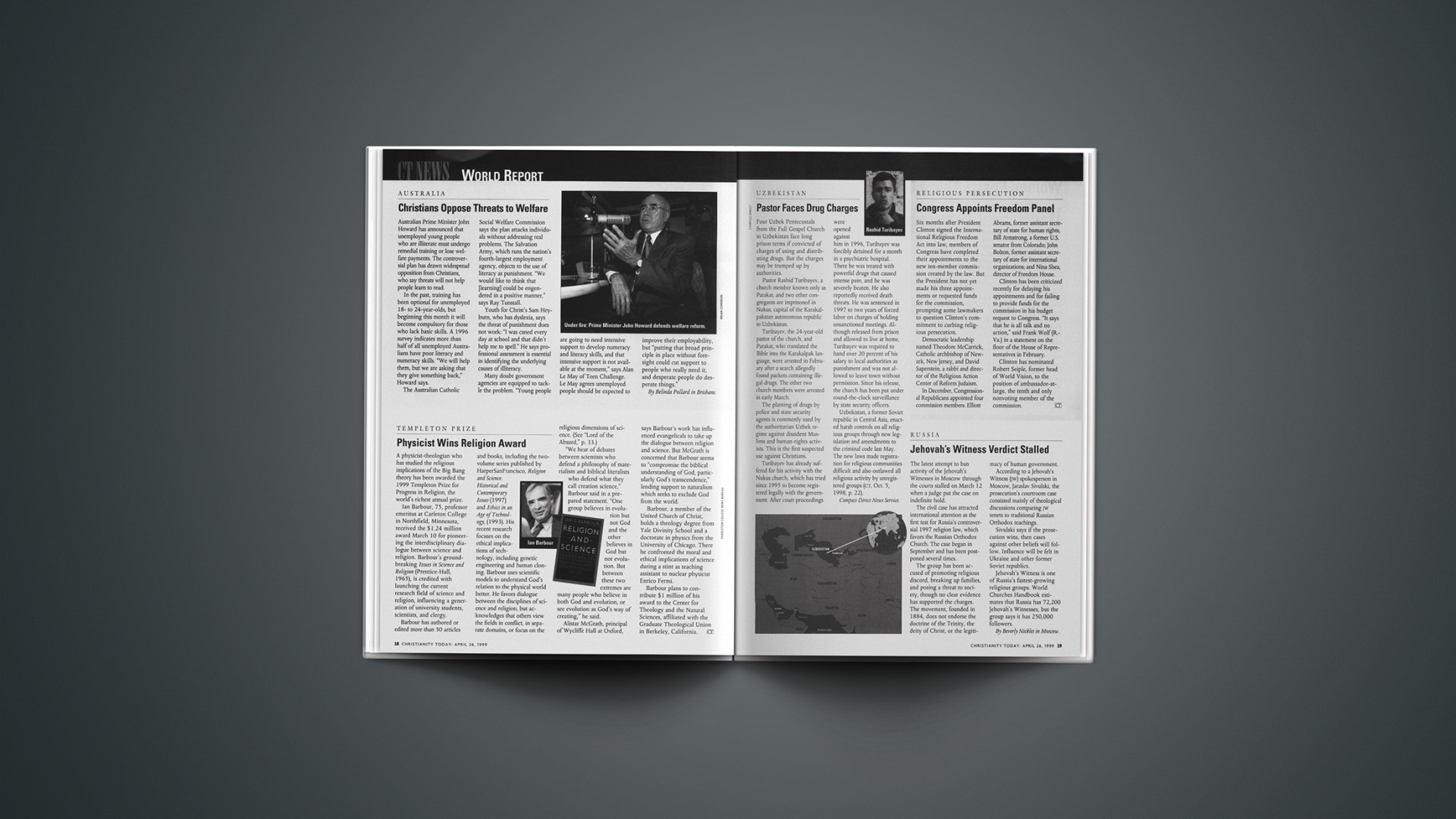Australian Prime Minister John Howard has announced that unemployed young people who are illiterate must undergo remedial training or lose welfare payments. The controversial plan has drawn widespread opposition from Christians, who say threats will not help people learn to read.
In the past, training has been optional for unemployed 18- to 24-year-olds, but beginning this month it will become compulsory for those who lack basic skills. A 1996 survey indicates more than half of all unemployed Australians have poor literacy and numeracy skills. “We will help them, but we are asking that they give something back,” Howard says.
The Australian Catholic Social Welfare Commission says the plan attacks individuals without addressing real problems. The Salvation Army, which runs the nation’s fourth-largest employment agency, objects to the use of literacy as punishment. “We would like to think that [learning] could be engendered in a positive manner,” says Ray Tunstall.
Youth for Christ’s Sam Heyburn, who has dyslexia, says the threat of punishment does not work: “I was caned every day at school and that didn’t help me to spell.” He says professional assessment is essential in identifying the underlying causes of illiteracy.
Many doubt government agencies are equipped to tackle the problem. “Young people are going to need intensive support to develop numeracy and literacy skills, and that intensive support is not available at the moment,” says Alan Le May of Teen Challenge. Le May agrees unemployed people should be expected to improve their employability, but “putting that broad principle in place without foresight could cut support to people who really need it, and desperate people do desperate things.”
Copyright © 1999 Christianity Today. Click for reprint information.










